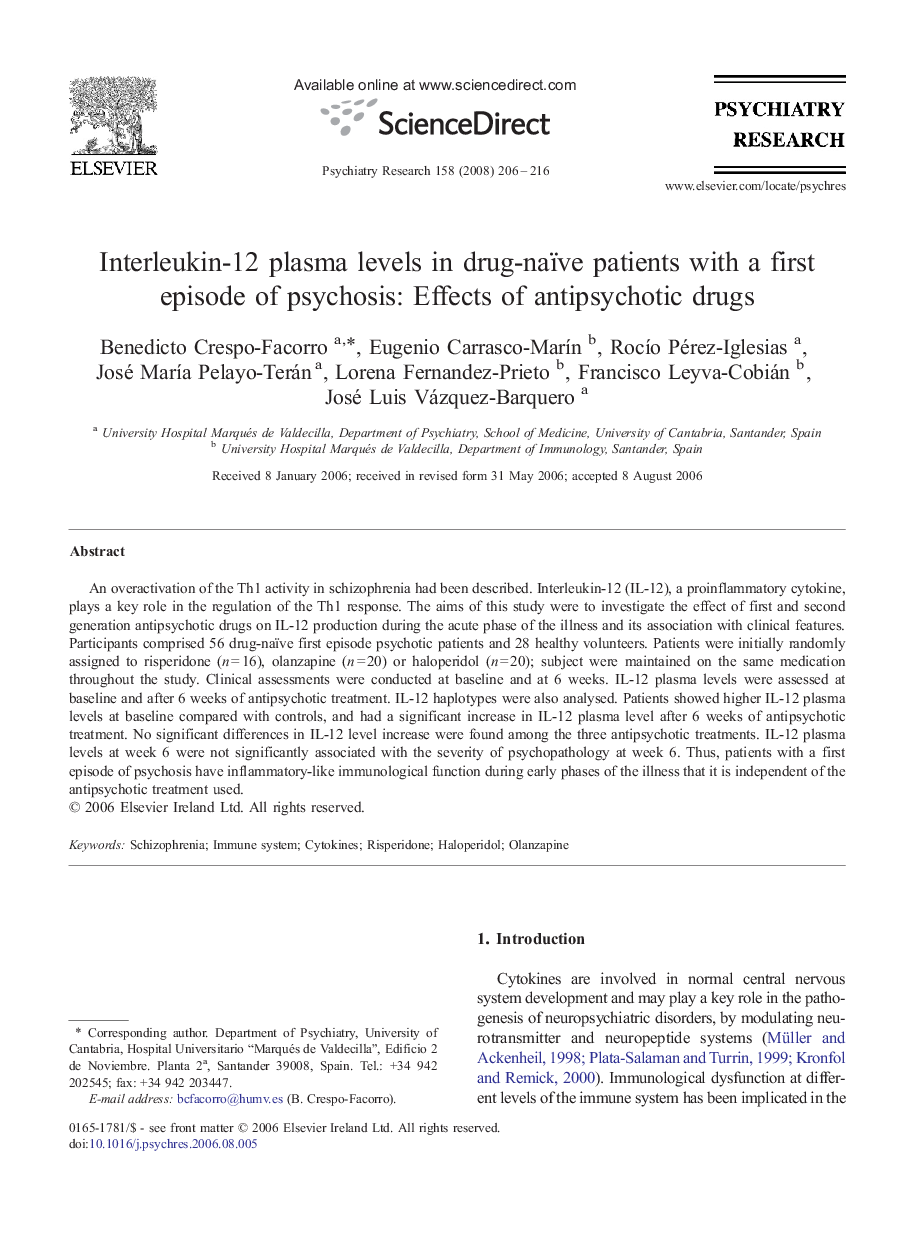| Article ID | Journal | Published Year | Pages | File Type |
|---|---|---|---|---|
| 334095 | Psychiatry Research | 2008 | 11 Pages |
An overactivation of the Th1 activity in schizophrenia had been described. Interleukin-12 (IL-12), a proinflammatory cytokine, plays a key role in the regulation of the Th1 response. The aims of this study were to investigate the effect of first and second generation antipsychotic drugs on IL-12 production during the acute phase of the illness and its association with clinical features. Participants comprised 56 drug-naïve first episode psychotic patients and 28 healthy volunteers. Patients were initially randomly assigned to risperidone (n = 16), olanzapine (n = 20) or haloperidol (n = 20); subject were maintained on the same medication throughout the study. Clinical assessments were conducted at baseline and at 6 weeks. IL-12 plasma levels were assessed at baseline and after 6 weeks of antipsychotic treatment. IL-12 haplotypes were also analysed. Patients showed higher IL-12 plasma levels at baseline compared with controls, and had a significant increase in IL-12 plasma level after 6 weeks of antipsychotic treatment. No significant differences in IL-12 level increase were found among the three antipsychotic treatments. IL-12 plasma levels at week 6 were not significantly associated with the severity of psychopathology at week 6. Thus, patients with a first episode of psychosis have inflammatory-like immunological function during early phases of the illness that it is independent of the antipsychotic treatment used.
